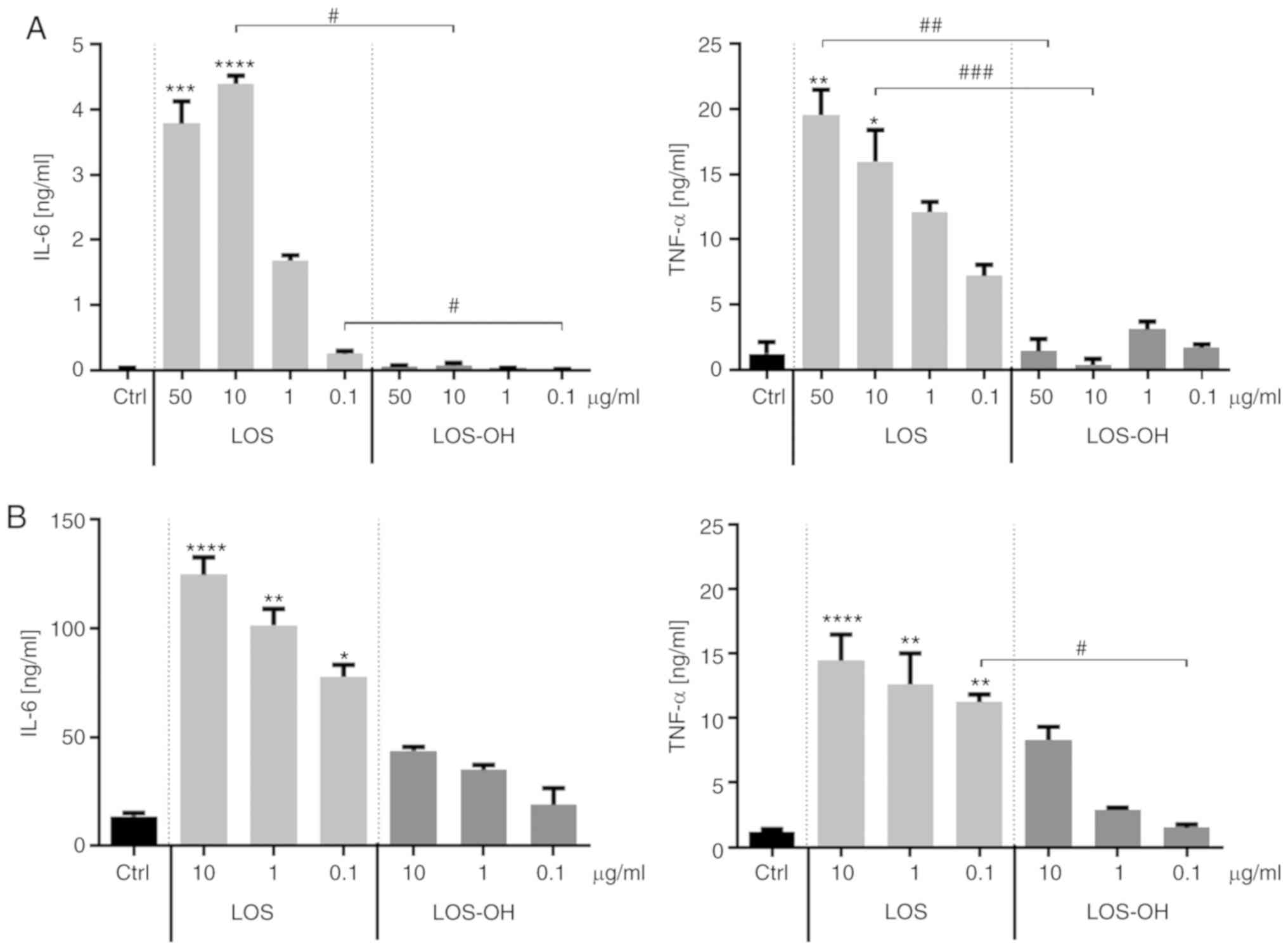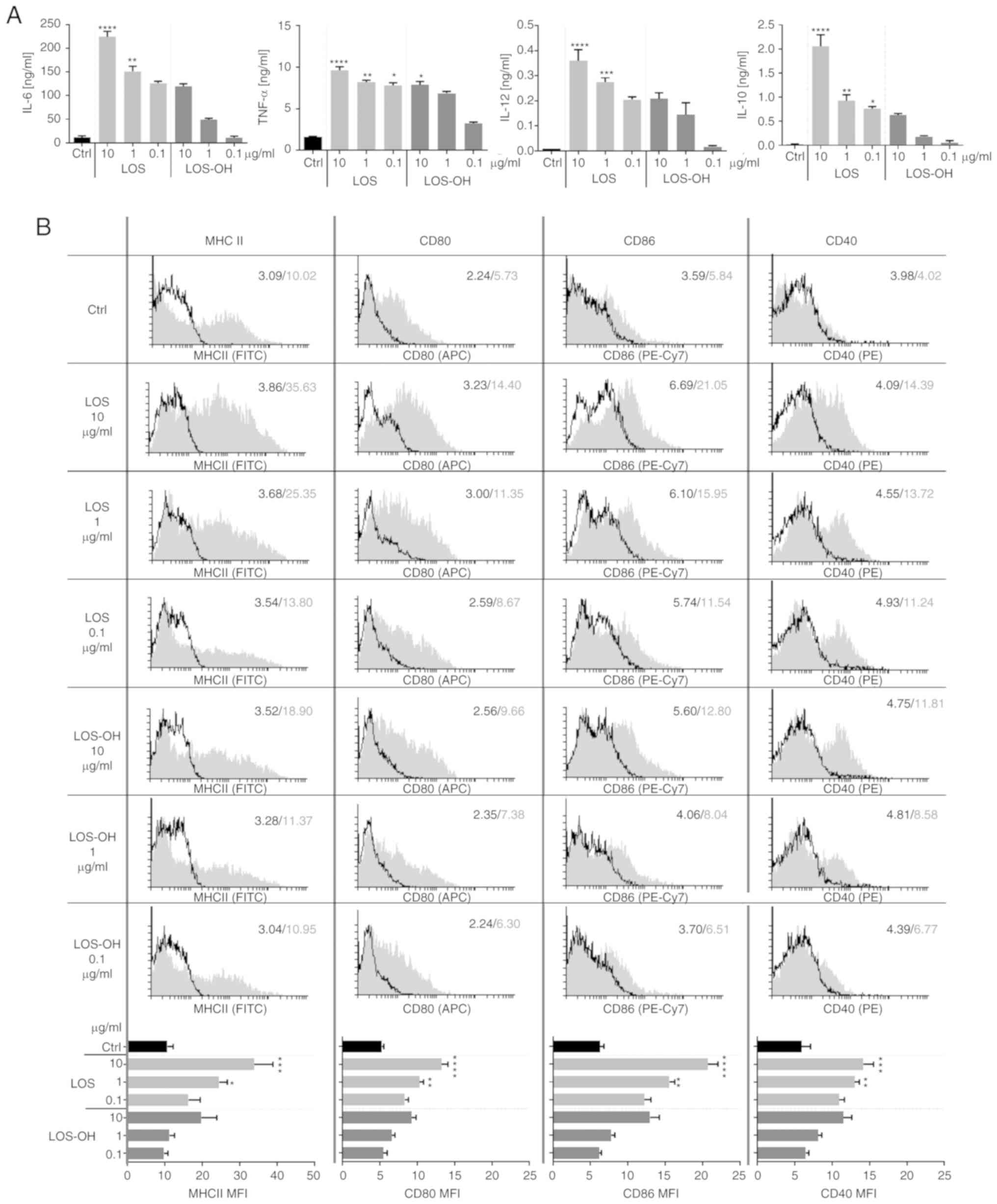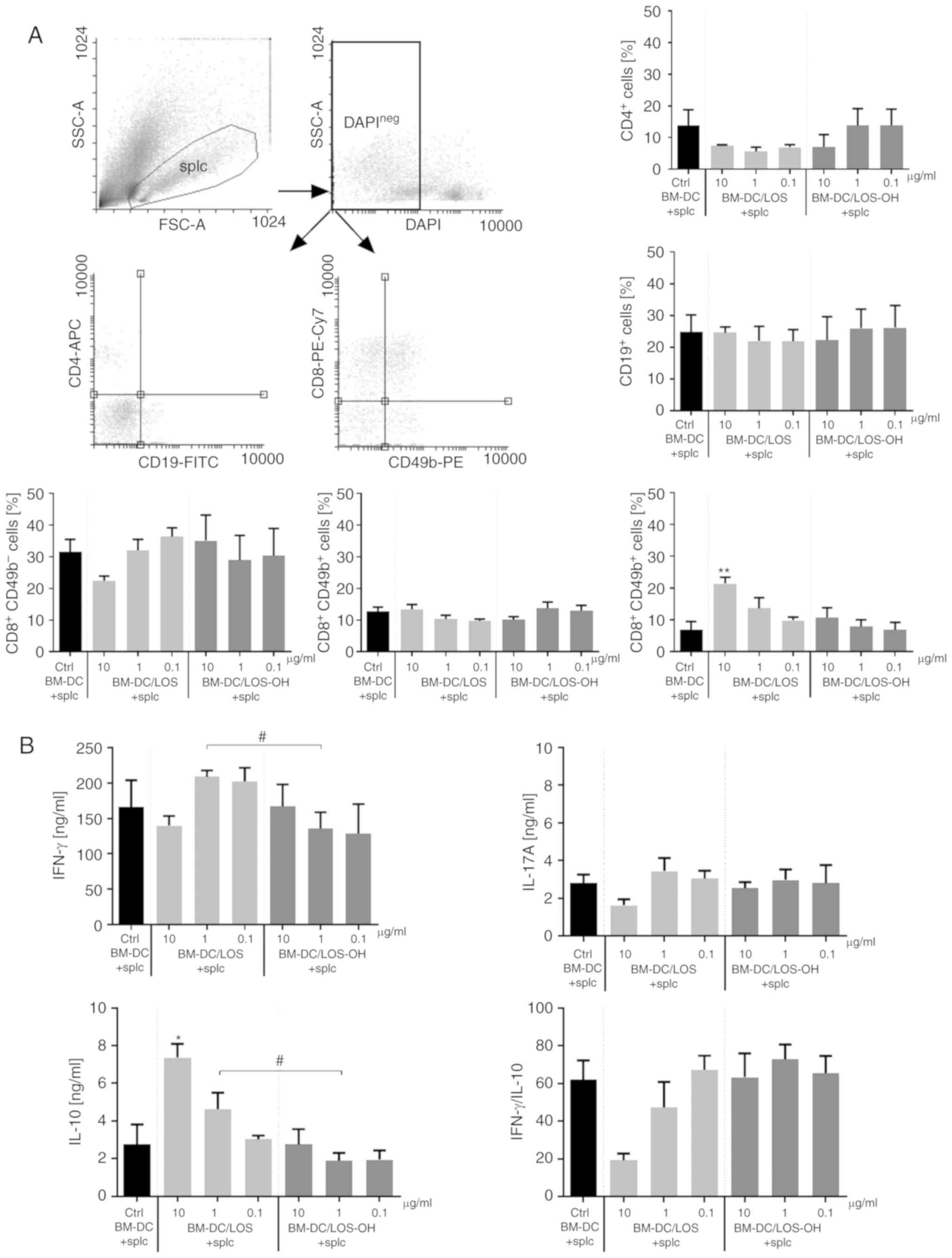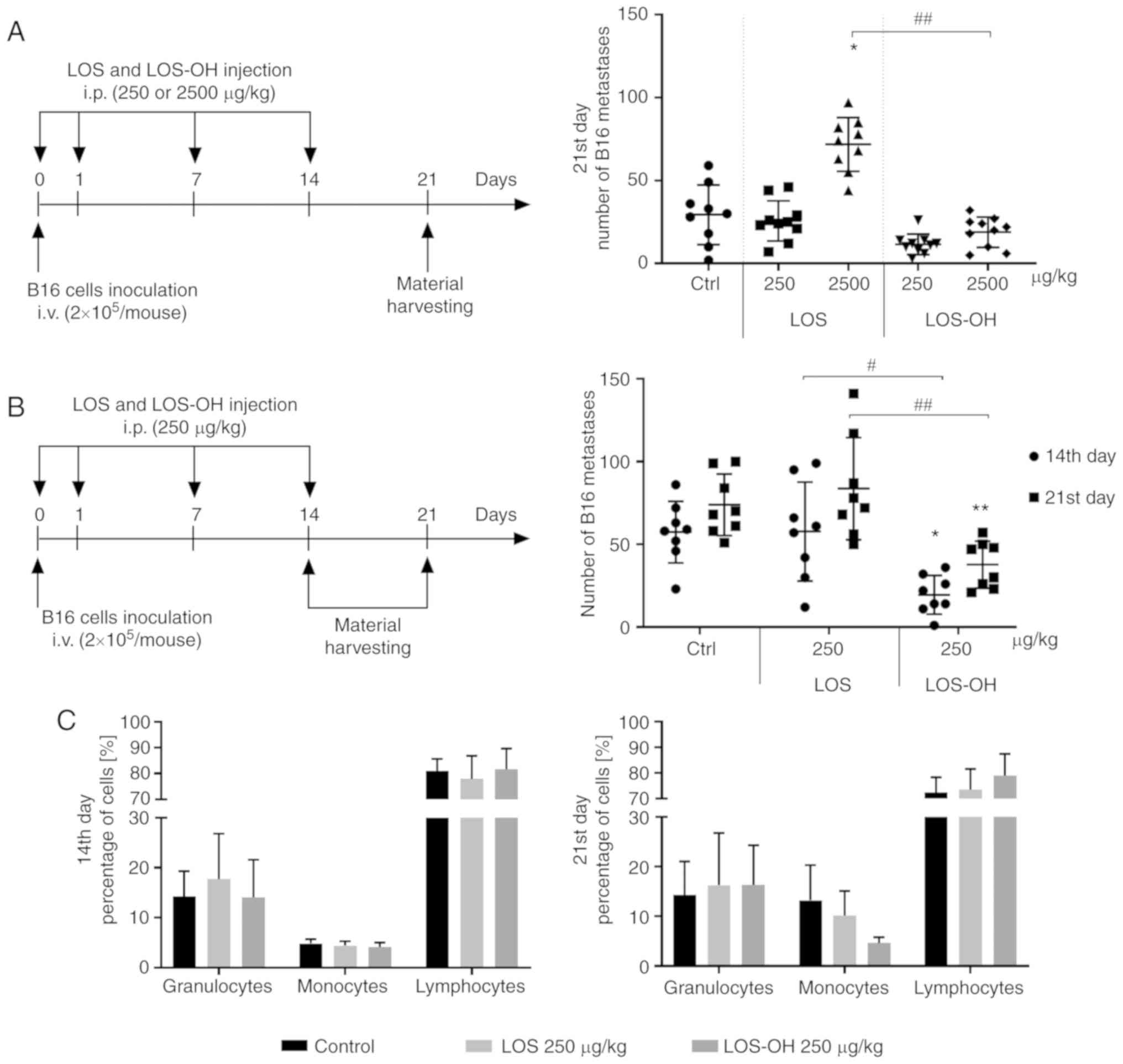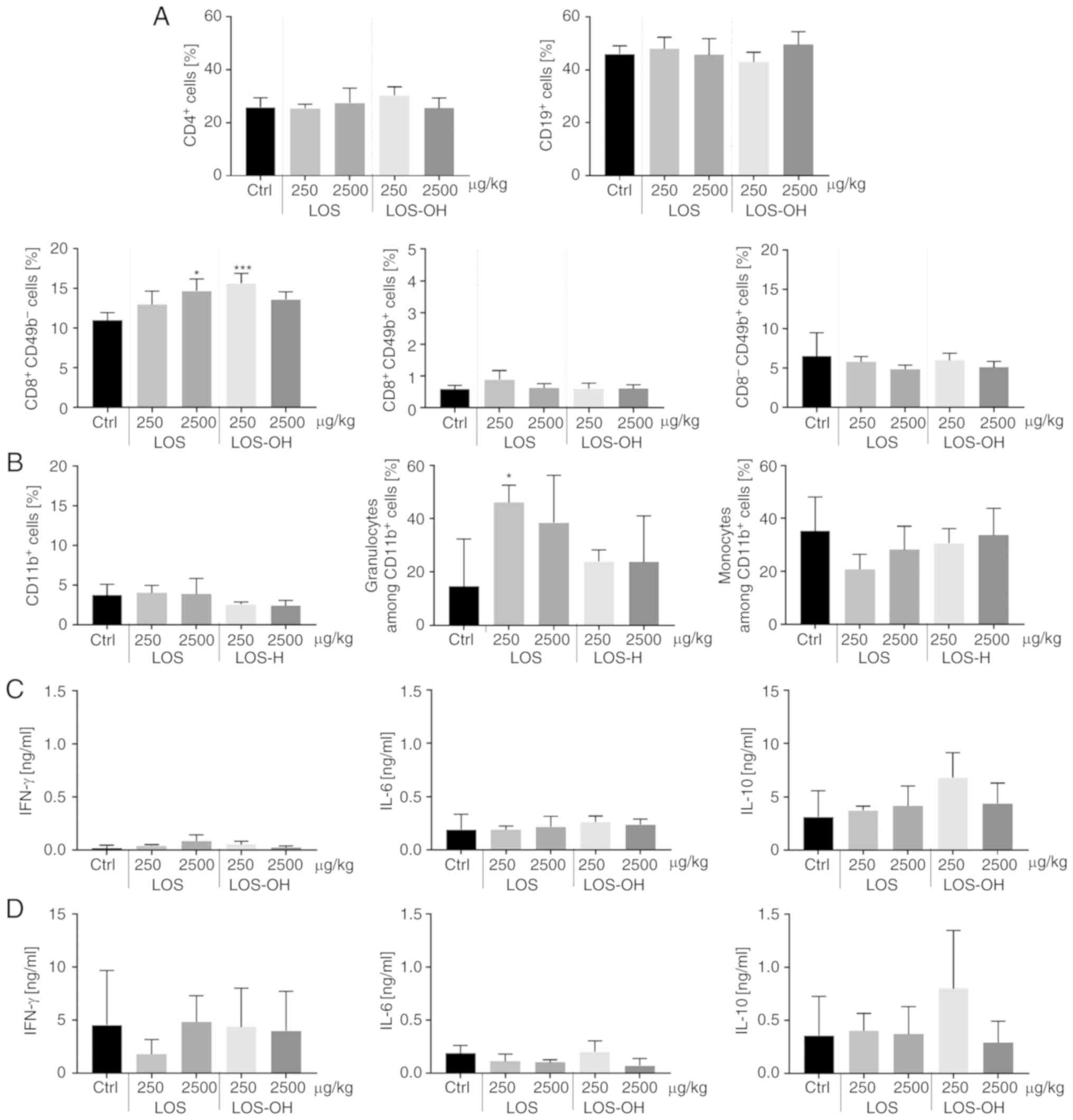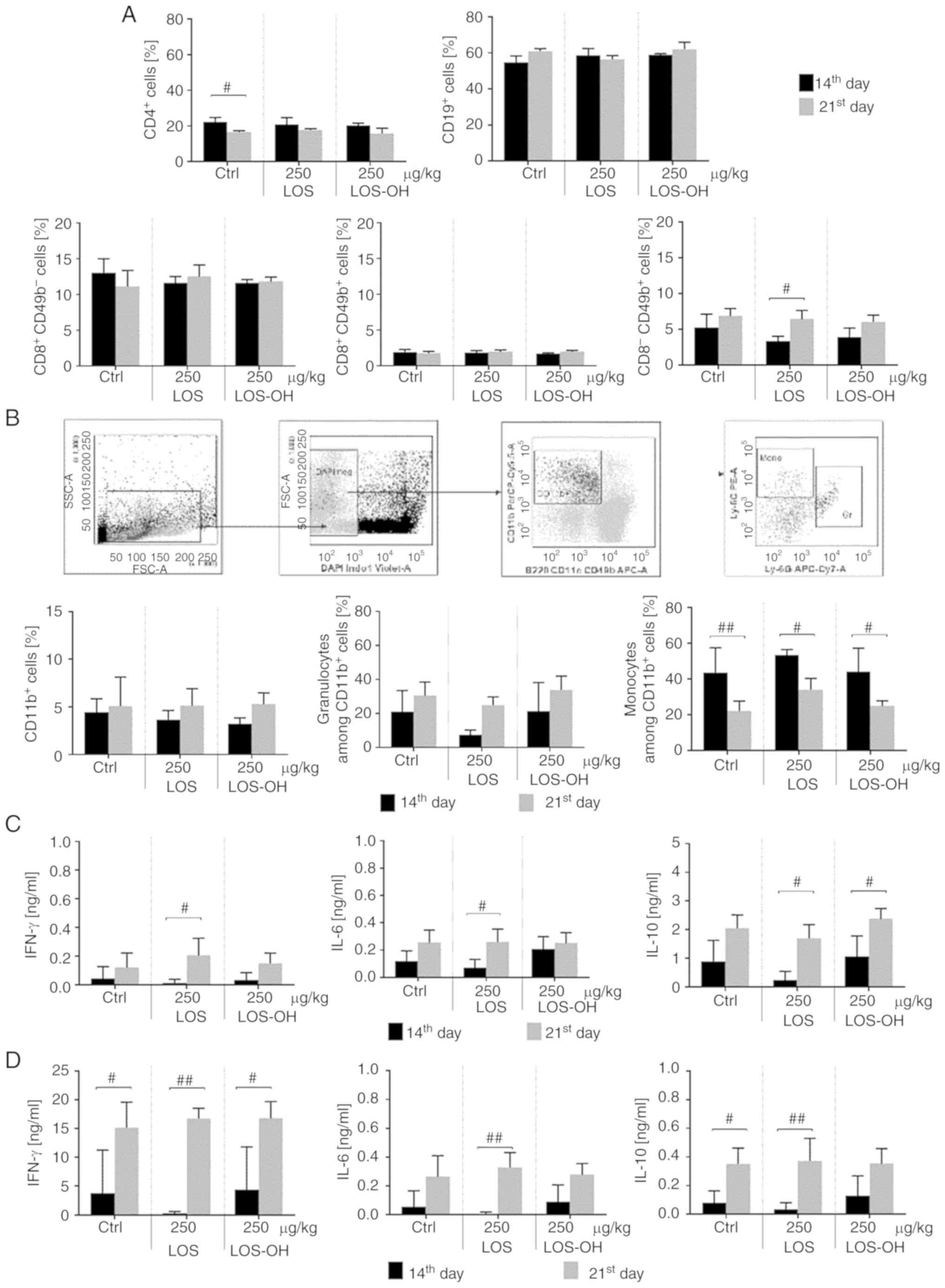Spandidos Publications style
Mierzejewska J, Szczygieł A, Anger‑Góra N, Rossowska J, Jarosz J, Wietrzyk J, Kaszowska M, Maciejewska A, Jachymek W, Niedziela T, Niedziela T, et al: De‑O‑acylated lipooligosaccharide of E. coli B reduces the number of metastatic foci via downregulation of myeloid cell activity. Oncol Rep 43: 270-281, 2020.
APA
Mierzejewska, J., Szczygieł, A., Anger‑Góra, N., Rossowska, J., Jarosz, J., Wietrzyk, J. ... Pajtasz‑Piasecka, E. (2020). De‑O‑acylated lipooligosaccharide of E. coli B reduces the number of metastatic foci via downregulation of myeloid cell activity. Oncology Reports, 43, 270-281. https://doi.org/10.3892/or.2019.7403
MLA
Mierzejewska, J., Szczygieł, A., Anger‑Góra, N., Rossowska, J., Jarosz, J., Wietrzyk, J., Kaszowska, M., Maciejewska, A., Jachymek, W., Niedziela, T., Lukasiewicz, J., Lugowski, C., Boratyński, J., Pajtasz‑Piasecka, E."De‑O‑acylated lipooligosaccharide of E. coli B reduces the number of metastatic foci via downregulation of myeloid cell activity". Oncology Reports 43.1 (2020): 270-281.
Chicago
Mierzejewska, J., Szczygieł, A., Anger‑Góra, N., Rossowska, J., Jarosz, J., Wietrzyk, J., Kaszowska, M., Maciejewska, A., Jachymek, W., Niedziela, T., Lukasiewicz, J., Lugowski, C., Boratyński, J., Pajtasz‑Piasecka, E."De‑O‑acylated lipooligosaccharide of E. coli B reduces the number of metastatic foci via downregulation of myeloid cell activity". Oncology Reports 43, no. 1 (2020): 270-281. https://doi.org/10.3892/or.2019.7403















